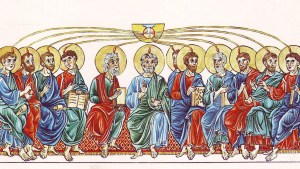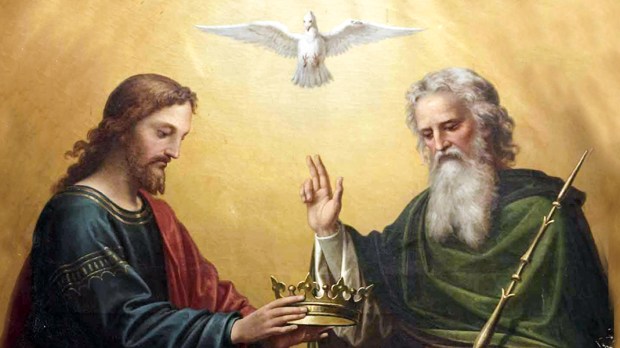After the celebration of Pentecost, the Roman Rite of the Catholic Church continues to meditate on the great mystery of God through the feast of Trinity Sunday. The Sunday following Pentecost has been dedicated to the Holy Trinity for many centuries, but was not always celebrated by everyone in the Church.
According to the Catholic Encyclopedia, initially this Sunday was known as a Dominica vacans, with no specific focus or theme. At that time there was no particular feast celebrating the Holy Trinity, but soon enough there arose a need for the Church to further define her beliefs in God.
A heresy known as the Arian heresy began to spread in the 4th century, disputing the traditional Christian belief of one God in three divine persons. The bishops of the Church decided to compose a Mass in honor of the Trinity to reaffirm the belief, but it was not given a specific date in the calendar.
By the 8th and 9th century, however, the Church found a perfect place. The St. Andrew Daily Missal explains how Sunday was the most fitting day.
Sunday is consecrated throughout the year to the Holy Trinity because God the Father began the work of creation on the “first day,” the Son made man rose from the dead on a Sunday morning, and the Holy Spirit came down on the Apostles on Pentecost Sunday.
Besides celebrating the Trinity in some fashion on each Sunday, there also grew a need to fill the “vacant” Sunday after the feast of Pentecost. This need was heightened by the fact that ordinations occurred during this time and there existed no specific liturgy. As the St. Andrew Daily Missal explains, “The feast of the Holy Trinity owes its origin to the fact that the ordinations of the Ember Saturday, which took place in the evening, were prolonged to the next day, which was Sunday and had no proper Mass at that date … [a votive Mass of the Holy Trinity] was celebrated in some places on this Sunday; and since it occupied a fixed place in the liturgical calendar, this Mass was considered as establishing this Sunday as a special feast of the Blessed Trinity.”
Celebrating Trinity Sunday after Pentecost also allows the Church to further reflect on the mystery of God after receiving the gift of the Holy Spirit. This helps us see the connection that if we truly want to understand the Trinity, we need to have the gift of the Holy Spirit. We can never fully understand who God is on our own and desperately need his guidance and inspiration.
The Trinity is one of the most fundamental beliefs of the Catholic Church and so it is fitting that we dedicate a particular Sunday to that mystery.

Read more:
What does the word “Pentecost” mean?

Read more:
Here are three traditional ways to explain the Trinity to your children

